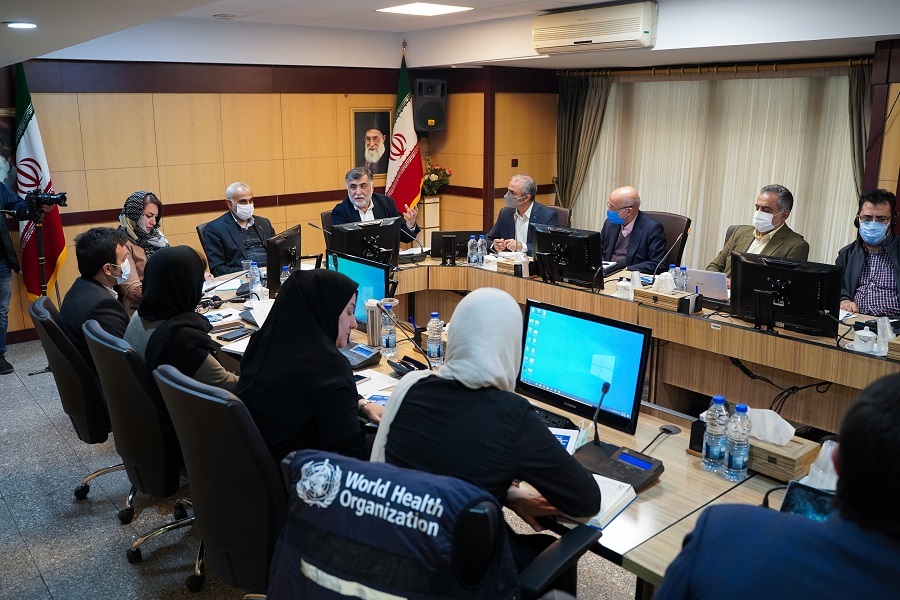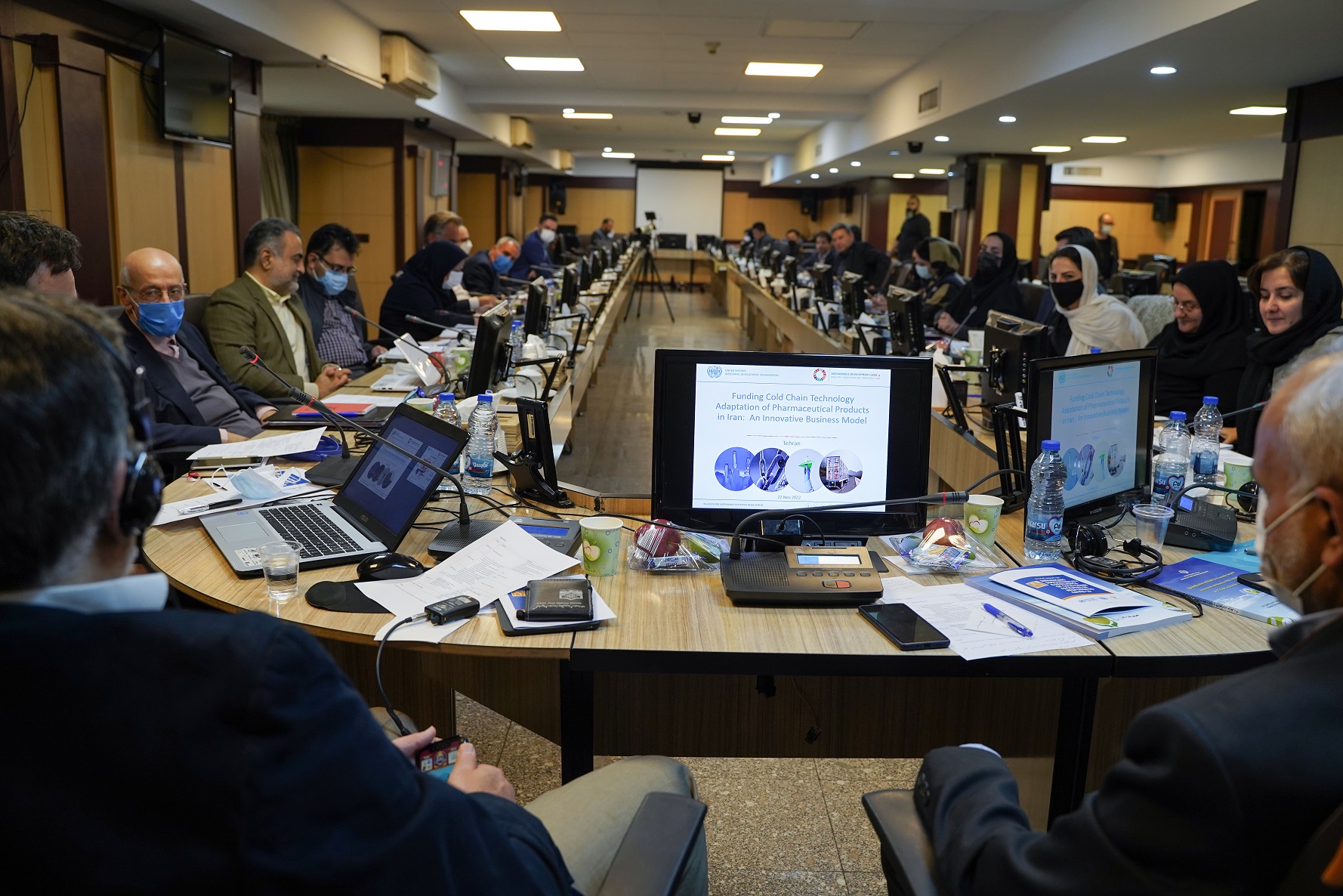
15 December 2022 – The World Health Organization (WHO) Country Office in the Islamic Republic of Iran, in collaboration with the United Nations Industrial Development Organization (UNIDO), and the Center for Environmental and Occupational Health of the Ministry of Health and Medical Education, recently organized a high-level strategic meeting to introduce energy efficient business models and solutions to enhance the health sector’s sustainability and climate resilience.
The high-profile meeting, held on 22 November 2022 at the Ministry of Health and Medical Education, brought together experts in the field from government and nongovernmental sectors to decide on the proposed financial mechanisms and business models for improving energy consumption efficiency within the health sector.
It was attended by authorities and representatives from Ministry departments, including Public Health, Curative Affairs, Development and Resource Management, Food and Drug Administration, Research and Technology, as well as the Supreme Council of Health and Food Security. Other sectors present at the meeting were Ministry of Foreign Affairs, Ministry of Energy, Ministry of Industry, Mine, and Trade, and Department of Environment, joined by other United Nations agencies, namely the United Nations Resident Coordinator's Office, United Nations Population Fund, United Nations Development Programme, and United Nations Children's Fund.
Health care facilities are among the largest and fast-growing service sectors with considerable energy consumption, cost and environmental impact. Carbon emissions of the health sector is estimated to account for 4.4% of global net emissions, listed as a significant source of global greenhouse gas emissions.
WHO Representative Dr Syed Jaffar Hussain opened the meeting saying, “Climate interventions provide a long-term environmental vision toward reducing carbon dioxide emissions,” while pointing out that this project was a unique interagency partnership between WHO and UNIDO to support Islamic Republic of Iran to develop a climate- resilient health system.
UNIDO Representative Dr Maryam Javanshahraki also pointed out that, “The conducted project in collaboration with the Ministry of Health and Medical Education mainly aimed to enhance infrastructure efficiency and sustainability, as well as build capacity and raise awareness, which in turn helps to strengthen the resilience of cold chain facilities of the health sector against climate change.”
Deputy Minister of Public Health at the Ministry Dr Hossein Farshidi took stock of the issues that the global human community was facing and addressing, including the impact of environment and climate change on health. He maintained that WHO’s Healthy Cities Programme could be considered as a stepping stone for devising and implementing environment-friendly and sustainable activities.

The meeting also discussed an overview of the global situation regarding the health impacts of climate change by Dr Rahim Taghizadeh, Head of the Healthier Population programme of the WHO country office. Head of the Center for Environmental and Occupational Health Dr Jafar Jandaghi shed light on the current situation of the national health sector, vulnerabilities, resilience, adaptation, actions taken or planned towards climate change, while Ms Mahnaz Sayahi, National Consultant on Montreal Protocol Project at UNIDO, reviewed the global carbon footprint of the health sector, including Islamic Republic of Iran’s situation in energy consumption.
Energy and Environment Consultant at UNIDO Dr Jalal Dehnavi demonstrated a summary of the carbon emission sources across the country and existing laws and regulations on energy optimization. He also introduced available mechanisms for financing energy efficiency, such as crowdfunding and green sukuks.
The meeting was enriched by proactive discussions regarding the upcoming actions and steps toward sustainability and efficiency in energy consumption in the sector.
Inputs were consolidated before the meeting concluded on proposed activities towards improving energy efficiency and enhancing access to reliable and clean energy sources within the health sector based on discussions in the meeting and a joint agreement consolidated and presented by Dr Taghizadeh and Dr Jandaghi.
The next steps proposed and agreed on at the meeting were to:
establish a working group to evaluate the situation of energy consumption in the health sector, and create an energy profile/platform;
step up advocacy on energy efficient solutions and business models;
introduce advanced technologies to the health sector;
upscale and/or develop and monitor the implementation of law/regulations and guidelines on energy consumption;
strengthen intersectoral collaboration and community engagement;
build capacity for health authorities and workforce across the country.


